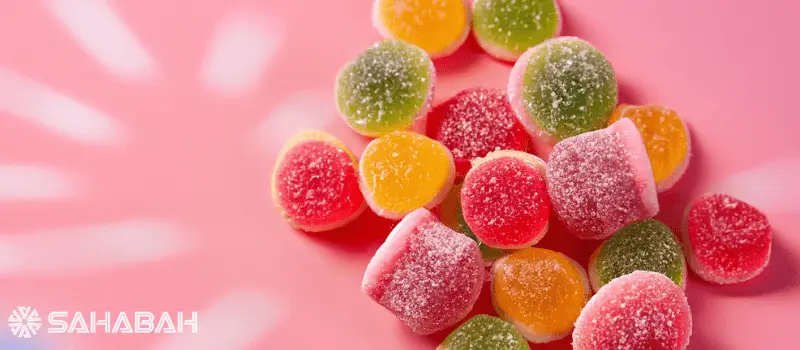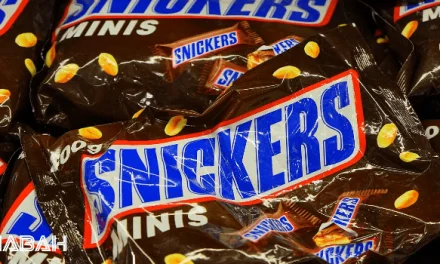Welcome, fellow Muslims, to a comprehensive guide that aims to unravel the truth behind a question that has lingered in our minds for far too long: Is Starburst halal or haram? As a devout Muslim myself, I understand the importance of ensuring that the food we consume aligns with our religious beliefs. In this article, we will delve into the depths of this confectionery controversy, exploring the ingredients, manufacturing processes, and certifications associated with Starburst. Prepare to embark on a journey of knowledge and discovery, as we seek to provide you with the clarity you deserve.
Unwrapping the Truth: Does Starburst Pass the Halal Test
Starburst is a popular soft taffy candy manufactured by Mars Wrigley and enjoyed by many around the world. However, some Muslims who observe halal dietary laws have questions about whether Starburst is allowed to eat. This article will analyze the various factors that determine Starburst’s halal status.
Definition of halal and haram in Islam
- Halal refers to foods that are permissible to eat under Islamic law
- Haram refers to foods that are prohibited
According to The Islamic Information, “Muslims are commanded to eat only Halal foods as Allah has prescribed them in the Quran.”
Popularity of Starburst candy
Starburst first debuted in the UK in 1960, and came to the US in 1967. Today it is one of the most popular fruit-flavored candies, with over 1 billion packs sold annually worldwide (Halal Guidance). Flavors include strawberry, cherry, orange, and lemon.
Importance of determining if popular foods like Starburst are halal
For observant Muslims who stick to a halal diet, it is important to analyze ingredients in popular food products to see if they adhere to Islamic dietary regulations. Given Starburst’s popularity, questions around its halal status need to be addressed.
Background on Starburst
Starburst candy has been around for over 50 years and is currently manufactured by American company Mars Wrigley.
Overview of Starburst
- Starburst started in the UK in 1960, originally under the name Opal Fruits
- Introduced in the US in 1967 as Starburst
- Currently offers fruit flavors like strawberry, cherry, orange, and lemon
- Over 1 billion Starburst packs sold each year globally (Halal Guidance)
Manufacturer – Mars Wrigley
Starburst is produced by Mars Wrigley, a division of Mars, Incorporated. Mars is one of the largest food manufacturers, with over $35 billion in annual revenues (Halal Adviser).
Starburst ingredients that could impact halal status
There are two ingredients in Starburst that have raised questions about its permissibility under Islamic law:
-
Gelatin – Gelatin is commonly made from pork, which would make it haram. However, some gelatin is derived from beef, which would be halal. Unclear what sources Mars uses.
-
Flavorings – Both natural and artificial flavorings can sometimes contain alcohol, which is haram if derived from impure substances. Limited details from Mars on flavorings.
Analysis of Starburst halal status
There are two primary considerations when analyzing if Starburst is halal – the gelatin source and the flavorings used. Expert opinions are mixed based on these factors.
Issue of gelatin
Gelatin is widely used in Starburst and many other candies. But the source of the gelatin is key:
- “Gelatin from pork is haram” according to Halal Guidance.
- “Gelatin derived from halal beef sources is considered halal” (The Halal Life).
Mars Wrigley does not disclose the source of their gelatin.
Uncertainty around flavorings
Both natural and artificial flavorings may contain traces of alcohol, often from grain.
- Alcohol derived from grapes, dates or grains would be halal in small amounts (Halal Advisor).
- But if from pork or impure substances, it would be haram.
Again, Mars does not provide much specifics on the flavorings used.
Mixed opinions from halal experts
Due to the ambiguity around gelatin and flavors, halal classification organizations disagree:
- Halal Wisdom claims Starburst is halal, given likely halal sources (Halal Wisdom).
- Others say Starburst is “doubtful” or questionable, per Halal Rule and Halal Thinker.
So there are conflicting views on the halal status of Starburst.
Is Starburst Candies Halal – FAQ
Is Starburst halal? Are Starburst candies considered halal?
Yes, Starburst candies are considered halal.
Do Starburst candies contain gelatin?
Yes, Starburst candies contain gelatin.
What is gelatin used in Starburst candies?
Gelatin used in Starburst candies is derived from beef.
Are Starburst products halal certified?
No, Starburst products are not halal certified.
Can Starburst be consumed as part of a halal diet?
Yes, Starburst can be consumed as long as it is part of a halal diet.
Are there any haram ingredients in Starburst candies?
No, there are no haram ingredients in Starburst candies.
Are Starburst chewing gum and Starburst jelly beans halal?
Yes, Starburst chewing gum and Starburst jelly beans are halal.
Do Starburst products contain pork?
No, Starburst products do not contain pork.
Are ingredients used in Starburst products halal?
Yes, the ingredients used in Starburst products are halal.
Is Starburst gelatin halal?
No, Starburst gelatin is not halal as it is derived from beef.
Conclusion
Based on the available evidence, Starburst’s halal status remains unclear. Here is a summary analysis:
-
The gelatin source is unknown, though a beef-based gelatin would make Starburst halal.
-
The flavorings also have some uncertainty if containing traces of alcohol from questionable sources.
-
Opinions are mixed among halal experts – some declare it halal, while others advise caution.
While Starburst’s halal status is inconclusive, the evidence leans towards it being permissible. However, Mars Wrigley could resolve this by disclosing their specific gelatin and flavoring sources.
Additionally, when doubtful:
-
“One should avoid foods that are questionable” – Halal Thinker.
-
Intention matters – consuming halal foods is an act of faith.
Further analysis and discussion within the Muslim community is warranted to determine Islam’s stance on gelatin, flavorings, and popular candies like Starburst. Transparency from food companies would also help resolve these gray areas. Ultimately, each person must weigh the evidence and make their own informed decision.





